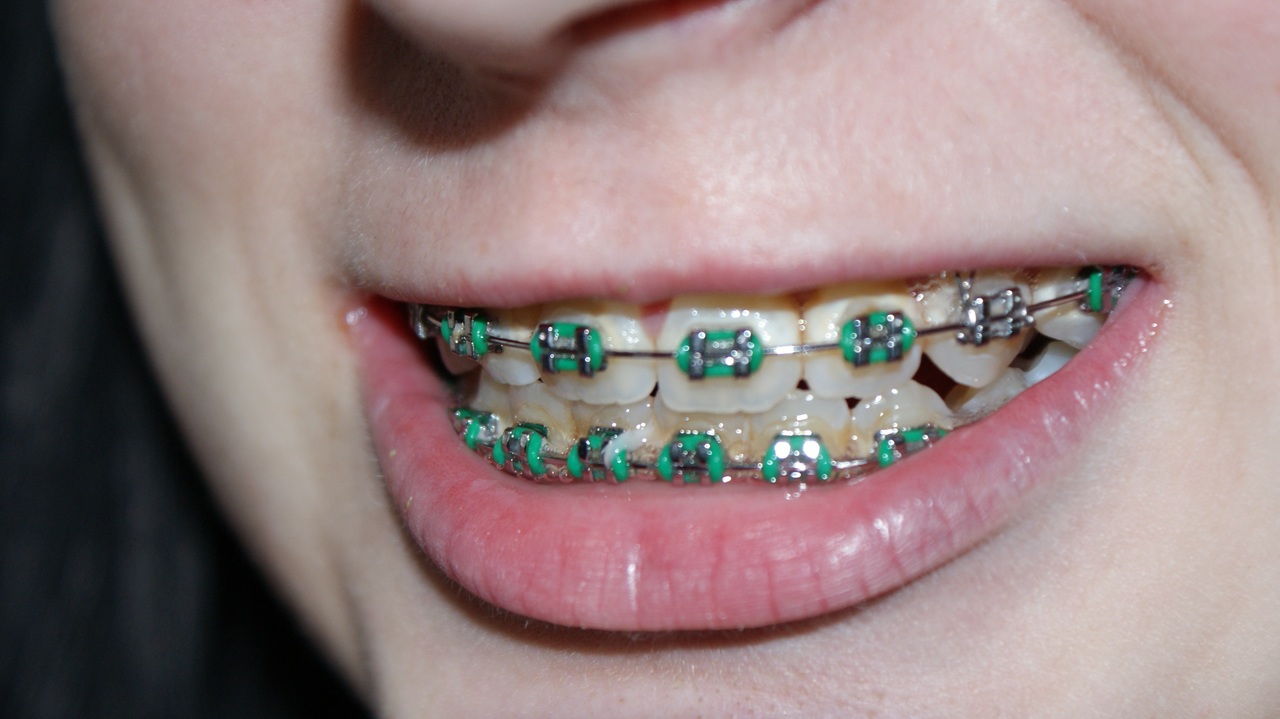
Braces can straighten your teeth and eventually give you a beautiful smile, but before that happens there are a few hoops you have to jump through. People who have braces will have to work extra hard to make sure their teeth and braces are free of plaque and food debris.
Unfortunately, due to the extra effort needed to maintain good oral hygiene with braces, many people (particularly teens) tend to neglect their dental duties. That means they aren’t flossing or brushing as often as they should, missing dental appointments, and so on.
If plaque on braces is allowed to build up, it can result in gingivitis and other serious oral health problems. Plaque will eventually harden into tartar, and gingivitis can progress into periodontitis, and if this happens then your teeth and gums will be in serious trouble.
That is why in this article, we will go over our tips on how to have good oral hygiene with braces to prevent plaque buildup from occurring. We also discuss some tools you can use to make life much easier compared to using a traditional toothbrush and dental floss.
Table of Contents
Best Methods to Remove Plaque on Braces
If you notice your braces have some plaque build up, then this section is for you. We go over the proper way to brush and floss with braces on, and we also cover some additional ways to deal with plaque on braces that you may not have heard of.
Flossing
You’ve probably heard that you should brush twice a day and floss once a day. But with braces, you should consider brushing and flossing after each meal, and specifically you should floss first. Flossing will dislodge the food particles between your teeth and allow you to brush them away after.
But how do you effectively floss when the wire from your braces are in the way? You need the help of a floss threader. First, you thread the floss through the floss threader. Then you thread the floss threader under the wire, where you can now floss like normal.
Sound annoying? If you have the cash to spare, we recommend you purchase a water flosser instead. The amount of time you can save as well as how easy it is to use will very quickly justify the money you spent on it. Read our review of the best water flosser for braces here to get an idea of which ones are worth the money.
Brushing
Now that you’ve got a bunch of brackets glued onto your teeth, there are a whole lot of places where plaque and food debris can accumulate. For this reason, expect to spend extra time brushing the areas next to the brackets.
Furthermore, when you brush, you should hold the toothbrush at a 45 degree angle to your gums. This is to angle the brush over the wire and brush the area behind it. Use gentle, short strokes approximately the same width as your teeth in a back and forth motion.
Remember to brush all surfaces; the inside surfaces, outside surfaces, the top, and even the tongue. You should brush behind your teeth with a vertical motion, once again using short, gentle strokes.
Brushing and flossing are some of the most important things you can do for your oral hygiene. However, if you are keen to do even more for your oral health, then try the following at-home treatments.
Oil Pulling
It is believed that swishing oil (typically olive or coconut oil) may reduce tooth decay, strengthen teeth, alleviate sore gums, and even reduce plaque.
Unfortunately, oil pulling is quite time-intensive. Just swish one tablespoon of either olive oil or coconut oil in your mouth for 20 to 30 minutes. If you thought using mouthwash took too long, then this method is definitely not for you.
However, the benefits might make the time spent doing it well worth it. Coconut oil is believed to produce therapeutic anti-microbial and anti-inflammatory effects due to the fatty acids it contains such as lauric acid.
Baking Soda
According to a study, baking soda is more effective at removing plaque compared to other products that did not contain baking soda. The reason why it is so effective is because it’s an abrasive and natural cleanser that makes it suitable for scrubbing your teeth.
Parting Words
Brushing and flossing your teeth is a lot trickier when you have braces, but that should not cause you to slack off due to the extra effort required. Consistency is key, and you need to brush and floss at least as often as you did before you had braces, preferably even more!
In a similar vein, you should still be going to the dentist for regular cleanings. It is recommended that you go even more as well, because there are so many new places for plaque to hide that you may not be able to properly clean yourself.
Between visits to the dentist and orthodontist, make sure you are following the methods outlined above to reduce plaque buildup on your braces.